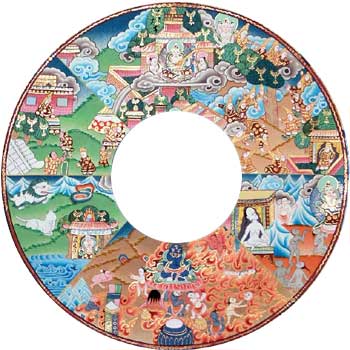- Joined
- Apr 28, 2011
- Messages
- 34,131
- Reaction score
- 37,571
- Location
- With Yo Mama
- Gender
- Male
- Political Leaning
- Independent
In a recent thread Logicman asked the question "Who directs karma?" I encouraged him to start a thread about it and promised to respond. He apparently elected not to start a thread, but it was a good question.
Here I will preface my response by saying that no one has ever accused me of being an authority on Buddhism. I am not. Also it is important to note that karma is a complex concept and as I understand it karma is defined in varying ways among eastern religions.
Who directs karma?
1. No one. Buddhism does not believe in a creator god.
2. In practical (and simple) terms, you are responsible for your karma. Your karma is a result of your intentions and your actions.
Here I will preface my response by saying that no one has ever accused me of being an authority on Buddhism. I am not. Also it is important to note that karma is a complex concept and as I understand it karma is defined in varying ways among eastern religions.
Who directs karma?
1. No one. Buddhism does not believe in a creator god.
2. In practical (and simple) terms, you are responsible for your karma. Your karma is a result of your intentions and your actions.


